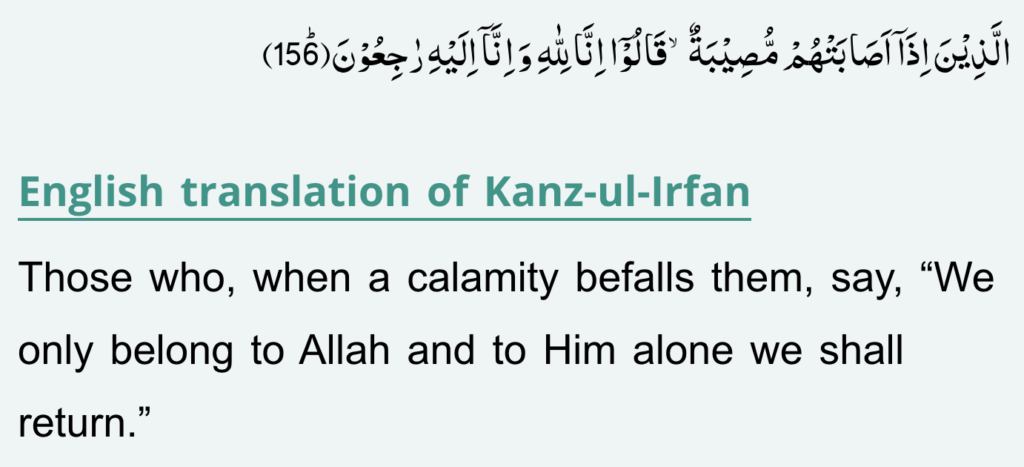Disclaimer:
The content published on this website is provided for general informational purposes only. Articles are generated with the assistance of artificial intelligence and are reviewed periodically; however, accuracy cannot be guaranteed in all cases. Readers are encouraged to verify important information from reliable and authoritative sources before relying on it. The website does not intend to mislead, and any errors found will be corrected when identified.
How to Learn About Islam and Strengthen Your Understanding of Faith
Islam is more than a religion; it is a way of life that touches every aspect of human existence. To truly learn about Islam, one must explore its teachings, values, and practices with an open heart and a sincere mind. Whether you’re a Muslim seeking to deepen your faith or someone curious about the religion, the journey of learning about Islam can transform your perspective and enrich your soul.
In today’s world, where misconceptions are widespread, understanding Islam from authentic sources is more important than ever. By studying its foundations, engaging in spiritual practices, and connecting with the Muslim community, you can build a strong understanding of this faith and apply it meaningfully in your daily life.
Why is it Important to Learn About Islam?
Learning about Islam helps clarify misunderstandings, strengthens personal faith, and nurtures tolerance and respect among diverse communities. For Muslims, knowledge of Islam guides daily life, fosters discipline, and deepens spiritual connection with Allah. For non-Muslims, it provides an opportunity to appreciate Islamic culture, history, and values without stereotypes.
Common Misconceptions About Islam
Many misconceptions stem from misinformation and media bias. Common myths include associating Islam solely with violence, misunderstanding women’s rights in Islam, or thinking that Islamic practices are rigid and outdated. In reality, Islam promotes peace, equality, justice, and compassion. Studying authentic sources helps separate fact from fiction.
Foundations of Islamic Knowledge
Understanding the roots of Islam begins with exploring its core texts and beliefs.
1. Understanding the Qur’an
The Qur’an is the holy book of Islam, believed to be the word of Allah revealed to Prophet Muhammad (peace be upon him). It provides guidance on faith, morality, worship, and social justice. Beginners should start with reputable translations and tafsir (exegesis) to grasp the meaning and context.
2. The Role of Hadith in Islamic Learning
Hadith are the sayings and actions of Prophet Muhammad (peace be upon him). They serve as an essential complement to the Qur’an, offering practical examples of how to implement Islamic teachings. Collections such as Sahih al-Bukhari and Sahih Muslim are widely trusted.
3. Core Beliefs and the Five Pillars of Islam
Islam rests on six articles of faith and is practiced through five pillars: Shahadah (faith), Salah (prayer), Zakat (charity), Sawm (fasting), and Hajj (pilgrimage). Together, these pillars shape a Muslim’s spiritual and social responsibilities.
Spiritual Practices to Deepen Understanding
Faith grows stronger when knowledge is put into practice.
1. The Power of Daily Prayer (Salah)
Prayer fosters discipline, mindfulness, and a direct connection with Allah. It reminds Muslims of their purpose and keeps them spiritually grounded.
2. Fasting and Its Spiritual Lessons
Fasting during Ramadan teaches self-control, empathy for the less fortunate, and gratitude. Voluntary fasts throughout the year provide additional spiritual benefits.
3. Charity (Zakat) and Helping Others
Charity purifies wealth and fosters compassion. Acts of kindness—whether financial, emotional, or physical—strengthen community bonds and embody Islamic values.
Practical Ways to Learn About Islam
Knowledge without action remains incomplete. Practical steps make learning engaging and transformative.
1. Reading Authentic Islamic Books
Books such as In the Footsteps of the Prophet by Tariq Ramadan and Purification of the Heart by Hamza Yusuf provide deep insights. Beginners should choose texts from trusted scholars to avoid misinformation.
2. Attending Mosques and Islamic Classes
Mosques often offer free classes, study circles, and sermons where learners can ask questions in a supportive environment. These gatherings also build connections with knowledgeable teachers and fellow seekers.
3. Exploring Online Resources and Courses
Websites like Yaqeen Institute and online courses from reputable Islamic universities make learning accessible worldwide. Digital resources allow self-paced study and interactive learning.
4. Seeking Guidance from Scholars and Teachers
A knowledgeable scholar helps clarify doubts, explain complex topics, and guide learners toward authentic understanding. Personalized mentorship ensures that one’s learning is aligned with Islamic principles.
Learn About Islam Through Community
Islam is not practiced in isolation but you can learn about Islam within a supportive community:
1. The Importance of Muslim Brotherhood and Sisterhood
The Prophet Muhammad (peace be upon him) emphasized unity and care within the Muslim community. Learning in groups fosters encouragement and mutual growth.
2. Engaging in Interfaith Dialogue
Respectful conversations with people of other faiths promote mutual understanding and reduce prejudice. Islam encourages dialogue rooted in wisdom and kindness.
3. Participating in Islamic Events and Programs
Events such as Ramadan iftars, Eid celebrations, and Islamic conferences offer opportunities to experience Islam in practice and strengthen one’s sense of belonging.
Strengthening Your Faith Beyond Knowledge
True learning comes from living the faith.
1. Applying Islamic Teachings in Daily Life
Whether through honesty in business, kindness in relationships, or patience in hardship, Islam guides every aspect of life. Applying teachings ensures that faith becomes a lived experience.
2. Building a Stronger Relationship with Allah
Through supplication (dua), remembrance (dhikr), and reflection, Muslims strengthen their connection with Allah. This spiritual closeness nurtures peace of mind and resilience in adversity.
3. Overcoming Doubts and Strengthening Belief
Doubts are natural in any spiritual journey. Addressing them through study, discussion, and reflection helps strengthen one’s belief and understanding of Islam.
Frequently Asked Questions About Learning Islam
Can non-Muslims learn about Islam?
Yes, Islam encourages everyone to seek knowledge. Non-Muslims can benefit from authentic books, lectures, and community events.
What is the best way to start learning about Islam?
Begin with the Qur’an and Hadith, then expand into Islamic history, spirituality, and jurisprudence with guidance from trusted sources.
How can I know which resources are authentic?
Rely on well-known scholars, reputable institutions, and recognized Islamic publishers to ensure authenticity.
Is it necessary to learn Arabic to understand Islam?
While Arabic provides deeper understanding, translations make Islam accessible. Many learners gradually study Arabic to enhance comprehension.
How can children learn about Islam effectively?
Through age-appropriate books, Islamic schools, and engaging activities like storytelling and crafts that introduce Islamic values.
Conclusion
To learn about Islam is to embark on a lifelong journey of knowledge, spirituality, and personal growth. By studying its foundations, practicing its teachings, and engaging with the community, you can build both intellectual and spiritual strength. Whether you’re a Muslim deepening your faith or someone curious about this path, Islam offers timeless wisdom for a meaningful and balanced life
Mushu, an experienced Saudi Arabia traveler and writer, shares insightful tips and spiritual reflections to enhance Hajj and Umrah journeys for fellow pilgrims. He has been to Makkah and Madina from 2016 to 2023 many times and his posts will reflect this.





